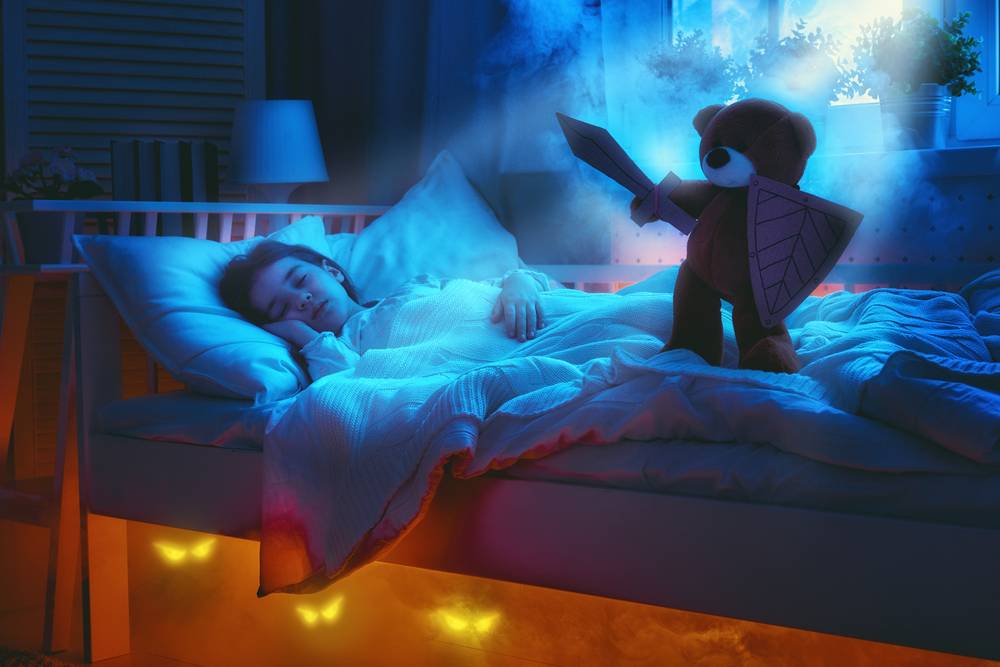Key points:
1. Children commonly have nightmares due to fears and experiences.
2. Comfort and explain to your child after a nightmare.
3. Discuss the dream to help them process and address worries.
4. Prevent nightmares with a regular routine and safe environment.
Just like adults, children sometimes work out confusing feelings or difficult experiences through their dreams. Even though hearing a sudden scream in the middle of the night coming from your little one’s bedroom is distressing, nightmares are quite common.
It’s important to note that all children have nightmares, regardless of their environment. Most parents will be concerned about a particular trauma their kid might have experienced, but nightmares can emerge with just telling a scary story (that may not seem frightening to you), going to the mall and your little one seeing a poster of an animal that they find frightening or finding a scary item. Later in the night, these scary stories or objects might find their way into your child’s dreams. This happens because children at this age have a hard time separating fantasy from reality, which can lead to fears and, thus, be vented through dreams.
What can you do to deal with your child’s nightmares?
While it is true that every child has an occasional scary or distressing dream, nightmares seem to be more frequent during the preschool years when fear of the dark is common. According to the National Sleep Foundation, around 25% of kids from 5 to 12 have frequent nightmares. Another thing that is important about nightmares is that they happen closer to the morning, in the late stages of REM sleep.
This is an important characteristic as it differs from night terrors, which happen during the first few hours of sleep when your child is sleeping deeply and are defined as episodes of terror or panic which happen during sleep. Unlike nightmares, there can be present signs that the kid is acting against the dream.
After a nightmare, it may be hard to settle your little one back in bed, but you must do it since they need those few hours of sleep. Go to your child when they cry out and provide physical reassurance –you can start by hugging them and rubbing their back until they calm down. You should also reassure them that everything is okay by explaining that the dream was just like a movie playing in their head and when they wake up “the movie turns off”. You can also ask them about the dream. Even though your child won’t be able to explain it in detail –since they are just developing their linguistic skills– talking about it can help them process the event. Don’t forget to listen to your child’s worries –don’t dismiss them! Another thing you can try is showing your little one there are no monsters under the bed or in the closet (if that is their fear), or you can even come up with a “happy ending” for the dream the next day.
What can you do to prevent them?
Many might wonder if there is anything they can do to avoid nightmares and provide their children with a peaceful night’s sleep, and the good news is that you can!
Here are 5 tips you can try at home:
- Have a regular bedtime and wake-up time.
- Stick to a soothing bedtime routine, where your child can feel safe and secure. For example, a warm bath, snuggling with you, reading, or talking about pleasant events of the day.
- Have a cozy bed and a peaceful place to quiet down.
- Avoid potentially scary movies, TV shows, or stories –or things that have triggered nightmares before.
- Explore sources of stress in your child’s day and take measures to reduce or stop their exposure to those experiences.








